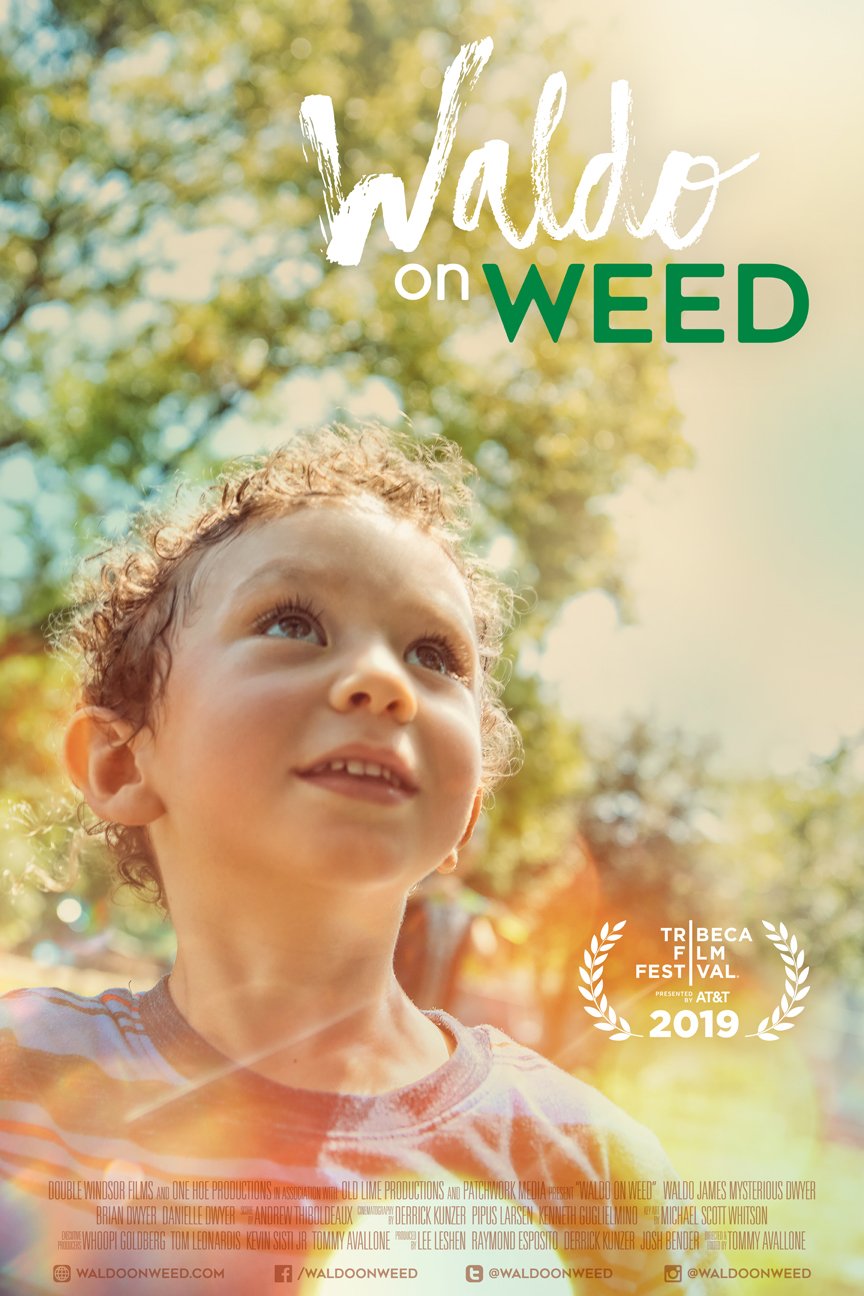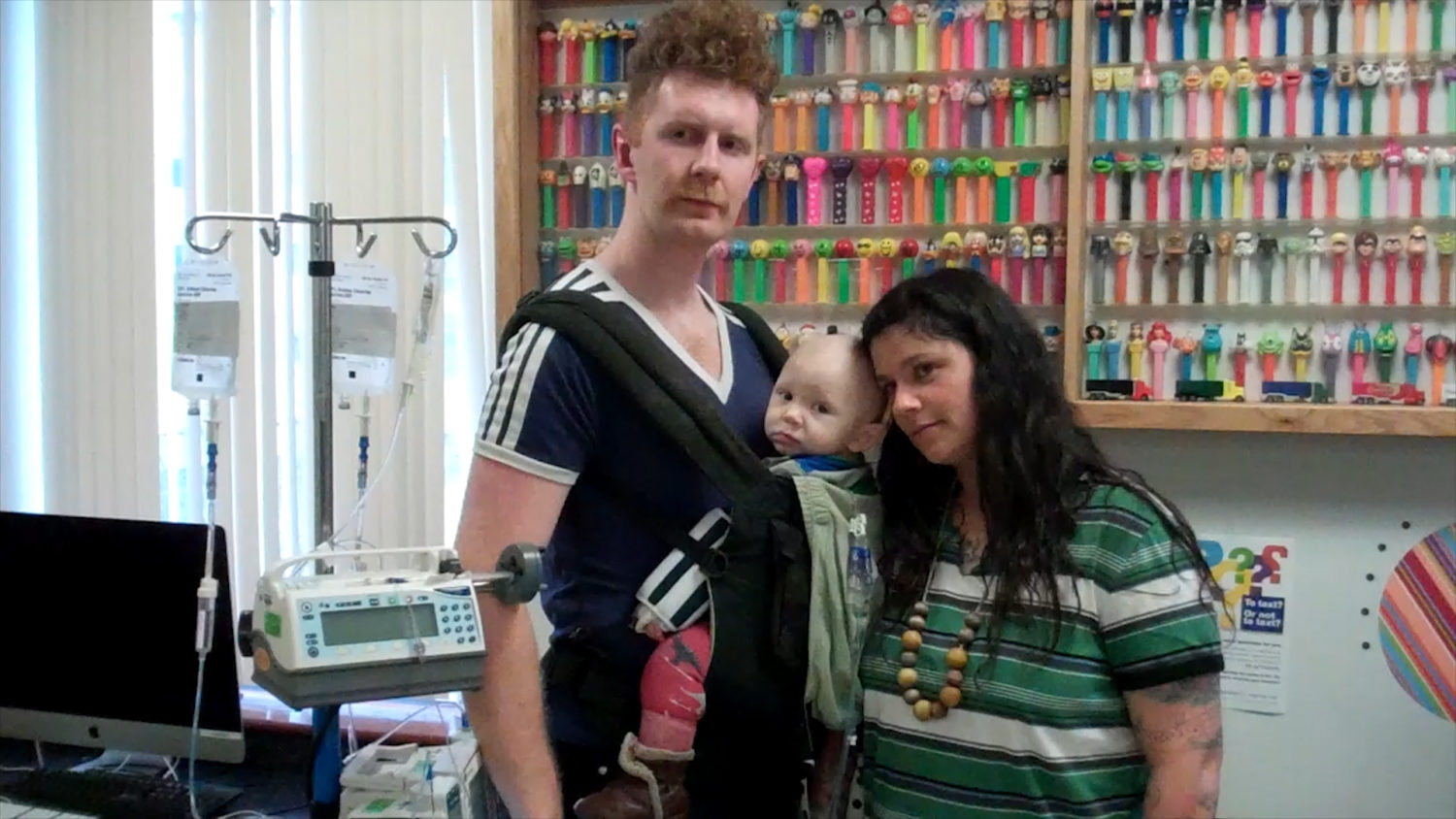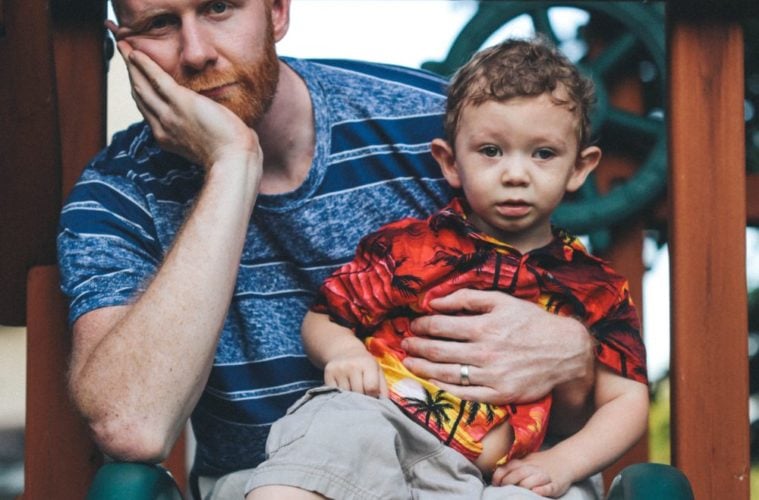The hype levels around Waldo James Mysterious Dwyer’s tale has been percolating since it hit the Tribeca Film Festival last spring, a now nearly a year later Waldo on Weed hits distribution.
On the eve of it being available to the masses this week, we chatted with Waldo’s dad Bryan Dwyer and the film director Tommy Avallone about the six-year journey that’s led to a final product people will be able to screen in their homes as they attempt to wrap their heads around medical cannabis.
But for Dwyer and his wife Danielle, using their experiences to light the path for other parents is nothing new. But the lens they present the tale of their son through really is. While we’ve seen a few famous CBD kids over the last decade, it always felt through the CNN camera or whoever else was producing. 
The thing that makes Waldo on Weed different is it feels a lot more like a collection of home movies than anything that’s come before on the subject. It starts as the tale of a Philly-famous pizza baby and matching dad, and then evolved to something wildly deep.
Many of the children who have been featured over the years across the media when talking about success with medical cannabis suffered from Dravet’s syndrome. The brutal form of childhood epilepsy has a lot more visible effect on kids than what Waldo went through in the early going. It was difficult for his parents to know if the cannabis was effective compared to the parents of kids who suffer Dravet’s, who can see the immediate drop in the frequency of seizures.
Riding along on the hope the pot works is a big part of the film, and when it seems like it may be having an impact, how can you not be thrilled for the Dwyers?
When we got to speak, Dwyer noted he had just received a message from a dad whose son had a tumor, and then spoke on my reference to how personal the footage used in the documentary was. “It is,” Dyer told L.A. Weekly. “There is essentially no cameraman for a lot of it. It’s not me even aware that I’m filming myself. It’s not a movie, I was just talking and processing something that was very authentic and real to me in the moment.”
Dwyer never expected much of the footage to see the light of day outside close family and friends.
“The fact that now it’s even a story that’s going to be released, for hopefully any parents or any people who are looking to have the stigmas around this plant unpacked — for that reason alone I’m glad it’s being released,” Dwyer said.
In the almost four years he’s been publicly forthcoming about Waldo’s success with cannabis, he’s regularly had parents hitting him up just like the one before our interview.
“Some of them where it’s legal. Some in another country where it’s not legal. It’s such a sticky and complicated conversation, especially when you talking about medicine for sick people,” Dwyer said. “Anything we can do to unpack the stigma around that, I want to participate; that’s why we even finished this and agreed to let the movie come out like this.”
Dwyer doesn’t know where the film will go or who will see it, but he thinks the tale of Waldo allows others to share in the thread of hope his family helped weave. Dwyer hopes the joy can resonate a little harder during these tough times for many.
“It feels even weird to even talk about this, considering the current conversation around coronavirus, but it just so happens the film is coming out right now. So I’m not going to deny that or fight it,” he said.
Dwyer says one of the things parents today have on their side in attempting to acquire cannabis for their children is the way the stigma around the plant has crumbled in recent years. Even still, there is plenty left when you’re talking about kids and pot. He also notes that while there are many kind farmers with the best intentions for the sick, there are also people looking to make a quick buck.

The Dwyers on the last day of Waldo’s first round of chemotherapy.
In the end, Dwyer has to refer people back to themselves about whether or not they want to use medical cannabis or provide it to their child.
“I tell parents I wish I could give you some narrow answer or a guarantee that could help your child, your sick friend, but I can’t. I can’t guarantee anything. All I can say is keep pulling the thread and find out for yourself,” Dwyer said, “Ultimately it’s up to each person to explore this when you’re at the frontier of medicine you know?”
Waldo is doing great these days. He was crushing a bowl of cereal while I talked to his dad, who described him as an almost 6-year-old string bean that loves school and all the social aspects that come with it.
“He’s really comfortable here on Earth as a human, so it’s cool he seems to make other people feel comfortable too,” Dwyer said.
We asked Dwyer if he expects to start hearing from a lot of parents again now that the doc is about to get the wind in its sails. “You just never know how things are going to impact people,” he replied, “But I’m like, the more people that can see this, the people that need to see this, I hope it finds them. Because that really is the only reason I would want to share something that is so deeply personal.”
Dwyer called the whole thing a really intimate home movie — especially for Waldo, when he gets older. “Man, if someone gave me a comprehensive movie of the first four years of my, life I don’t know how I’d feel about that,” Dwyer admitted. “But it would probably be a trip.”
So what’s it like chopping up such personal moments of strangers into a documentary? We reached out to Waldo on Weed’s director Tommy Avallone to get his take. Avallone got into the mix in 2017, at the time Dwyer loaded him up with the categorized footage of Waldo’s journey. The two had previously worked on a shortform project of the footage with others, but it ended up evolving more into Avallone’s vision.
“I had met Brian because I was a fan of his pizza shop. He was the character in Philly. He was just a known guy,” Avallone told L.A. Weekly.
Avallone had originally come to Dwyer with the idea of doing something around pizza, since it’s what made Dwyer a local celebrity. When they met, Dwyer explained to Avallone he was leaving the pizza place to help Waldo and continue his advocacy.
“We started filming as we were filming The Bill Murray Stories,” Avallone said.
Avallone said it was weird going through the family video archive as an acquaintance.
“I mean I know Brian, I know Danielle, but in some ways I’m a stranger in that I don’t know them that well. These are really intimate moments that weren’t supposed to be seen. Especially some of the stuff when Waldo is in chemo on these big hospital beds,” Avallone said. “It was intense, a lot of intense stuff to go through.”
We asked Avallone about how the film starts with a warm digital scrapbooking feel before Waldo gets diagnosed. Avallone does a great job showing how much love Waldo had around him so when the bad news comes you’re glad to know he’s in the hands of such loving parents and friends. We asked Avallone what it was like trying to convey the roller coaster the best he could.
“Brian was just a funny guy that liked to play around with a Flip cam. So you were seeing a lot of videos of Waldo just playing around being goofy, them at the pizza shop,” Avallone said, “That’s what the Flip cam was designed to do, it just took a turn.”
Waldo undoubtedly joins the ranks of other children who have changed the medical cannabis conversation across the world. Avallone spoke on what it’s like giving the story the platform to change hearts and minds, even if he and the Dwyers only meant to do an apolitical tale of the family’s own experiences.
“I’m not really a marijuana guy,” Avallone said. “It was just one of those things where I really paid attention to and connected with, what a father would do to save his son.” Avallone argues cannabis is just a part of that story. “In no way do I think our film pushes an agenda. I think it just tells a story of “my kid’s 6 months old and sick, and I have no idea what to do.”
Avallone also pointed to his inclusion of advocates from both sides of the issue.
He hopes it will continue to be the conversation starter it was at Tribeca Film Festival, where the Q&A kept going into the lobby.
Advertising disclosure: We may receive compensation for some of the links in our stories. Thank you for supporting LA Weekly and our advertisers.

